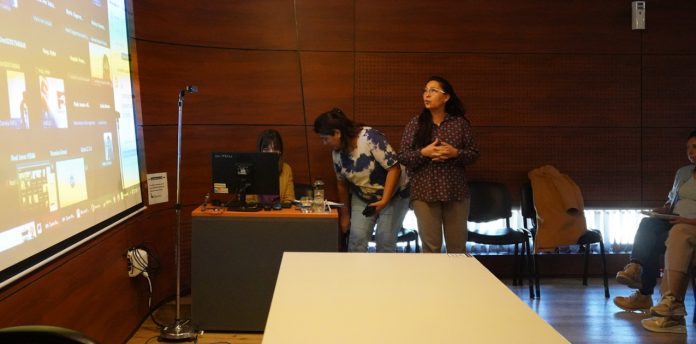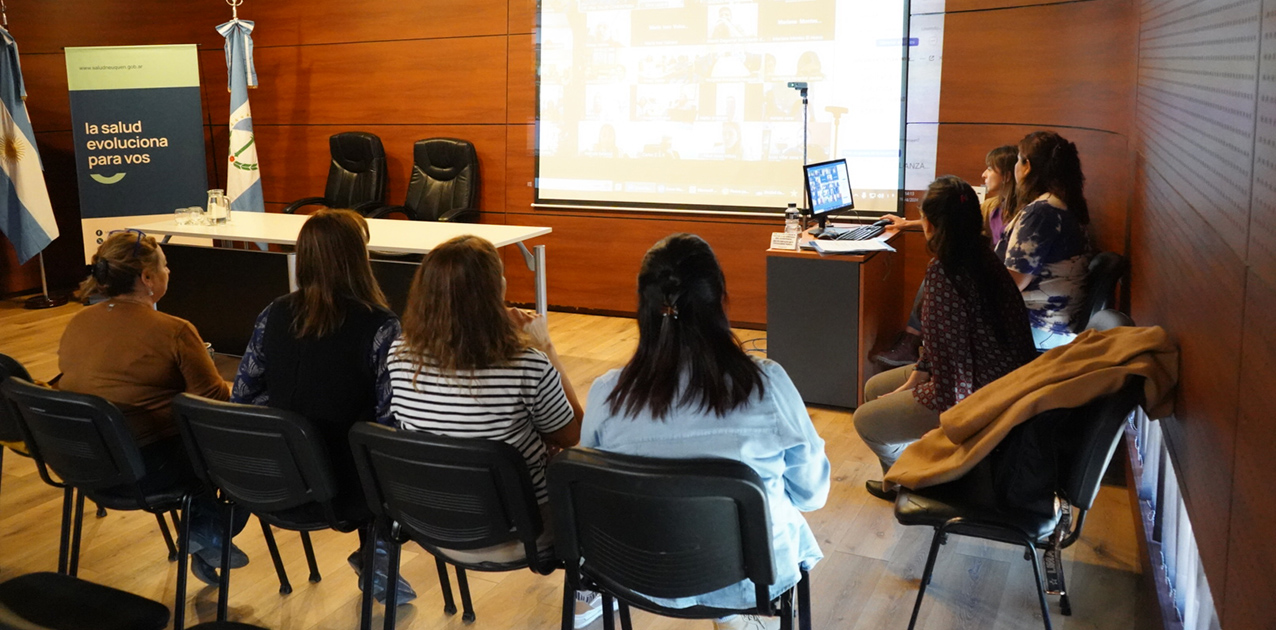
It will reorganize care during the winter at all levels of the health system.
Launched on Tuesday, the Neuquén Public Health System's Winter Plan is a strategy implemented every year to reorganize healthcare during the winter.
This event was implemented through a virtual meeting, led by the Undersecretary of Health, Silvina Mastrangelo, with the Regional Director of Primary Health Care, Edgardo Iniguez, and various health authorities from all health regions and their technical teams for epidemiology, laboratories, pharmacy, catering and immunizations.
The winter plan is implemented every year due to lower temperatures, increased viral spread of respiratory diseases and consequent increased consultations with the health team.
At the opening, Mastrangelo explained that extensive work had been done in preparing the planning. “We have all worked during the pandemic and know how to operate in critical situations, and we also have prior training regarding the respiratory diseases that I am talking about,” he said. Belief must also be put to good use.”
For his part, Iñiguez stressed that the winter plan strengthens the health system in Neuquén, both outpatient care and inpatient care, to provide timely treatment for respiratory diseases, especially in children under 6 years of age.
In this way, in accordance with the guidelines of the Regional Health File, the work of health institutions was reorganized, teams were strengthened through the recruitment of kinesiologists, paediatricians and nurses, and the acquisition of new equipment and the correct distribution of supplies and medicines were planned to achieve a coordinated and high-quality response to the population of Neuquén.
This strategy extends between the months of April and September, with the establishment of special clinics (scheduled or upon request) for respiratory diseases and bronchiolitis cases, with the availability of oxygen in health centers, with the aim of treating critical attacks associated with respiratory diseases while giving priority to the care of children.
This year, the medicines needed to address the treatments will be guaranteed through purchases made within the framework of the Health Emergency Law No. 3422, which will be supplemented by the provision of supplies from the national REMEDIAR programme.
On the other hand, the number of nasal cannulas for high-flow oxygenation (CAFO) therapy, which is high-tech equipment, has been increased to enhance non-invasive ventilation treatments and reduce complications. This technique succeeds in avoiding, in many cases, the referral of patients to intermediate or intensive care, which makes it useful to coordinate the use of hospital beds at different levels of care.
Currently, Neuquén Provincial Hospital is already using this equipment, while Heller and Bouquet Roldan hospitals will integrate it this season.
Respiratory diseases in winter
During the winter, the majority of outpatient consultations and hospitalizations in children are for bronchiolitis. It is an infection that mainly affects girls and boys under two years of age. It can be caused by various viruses, although the most common is respiratory syncytial virus (RSV).
It should be noted that this year a vaccine against this virus was included in the national vaccination calendar, which is administered free of charge and obligatory (during the virus spread season) between 32 and 36.6 weeks of pregnancy. This is a strategy to protect newborns from bronchiolitis and pneumonia during the first six months of life.
Bronchiolitis affects the small airways through inflammation of the bronchioles, causing varying degrees of difficulty breathing and manifesting itself as agitation, coughing, weakness, and difficulty eating or sleeping.
the Signs Warning It is rapid breathing, with wheezing or snoring. Chest sinking when breathing. Fever over 38 degrees that persists. When these signs appear, it is recommended to consult the nearest health center and not self-medicate, because taking treatments available without a prescription can cause poisoning and mask the symptoms associated with the diagnosis.
Early diagnosis and timely treatment of respiratory diseases are essential to reduce complications.
To prevent respiratory infections and other diseases, it is recommended that:
- Indoor ventilation.
- Wash hands properly and frequently or use alcohol-based gel (if soap and water are not available to sterilize hands).
- Cover your mouth and nose with your elbow when coughing or sneezing.
- Wipe your nose with disposable tissues.
- Avoid contact with people who have contagious diseases.
- Avoid cigarette smoke and stove near children.
- Keep vaccination schedules up to date.
Regarding this last point, the Prefectural Ministry of Health indicates that the regular vaccination schedule contains vaccines against influenza, respiratory syncytial virus and pneumococcus.
In this sense, it is important to remember that health workers carry out vaccination activities, especially since some health centers are open in the evening.
Fighting influenza: For health workers, pregnant women (at any time during pregnancy), postpartum people, girls and boys 6 to 24 months (should receive 2 doses at least 4 weeks apart), all people over 65 years of age, and people aged They are between two years old. And 64 years of age with serious diseases such as heart, respiratory, kidney disease, immunosuppression, obesity and diabetes (with medical indication).
Against RSV: For pregnant women between weeks 32 and 36.6 (during the virus outbreak season).
Pneumococci: For infants, people over 65 years of age, people between 5 and 64 years of age, those with weakened immune systems, chronic diseases, and people undergoing hematopoietic cell transplantation.

“Beeraholic. Friend of animals everywhere. Evil web scholar. Zombie maven.”

